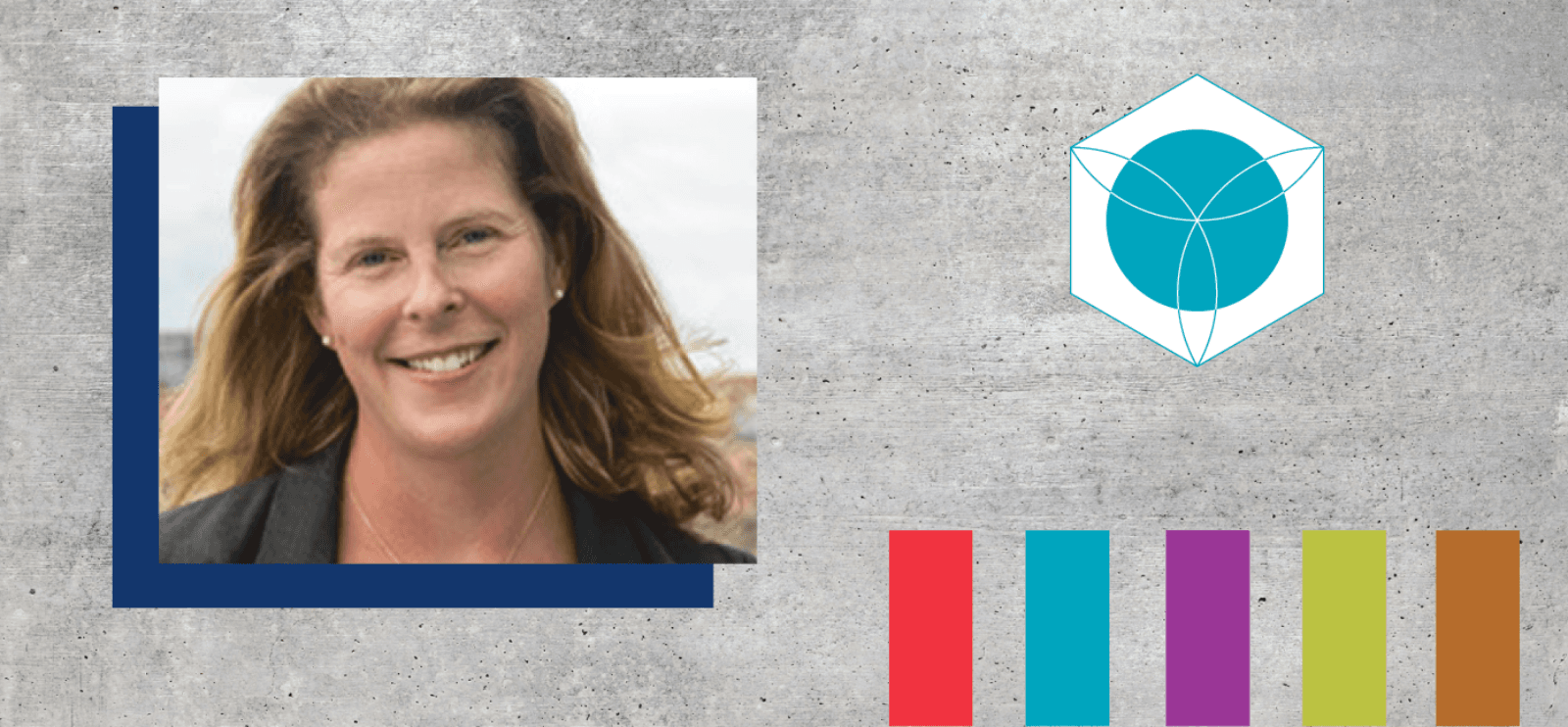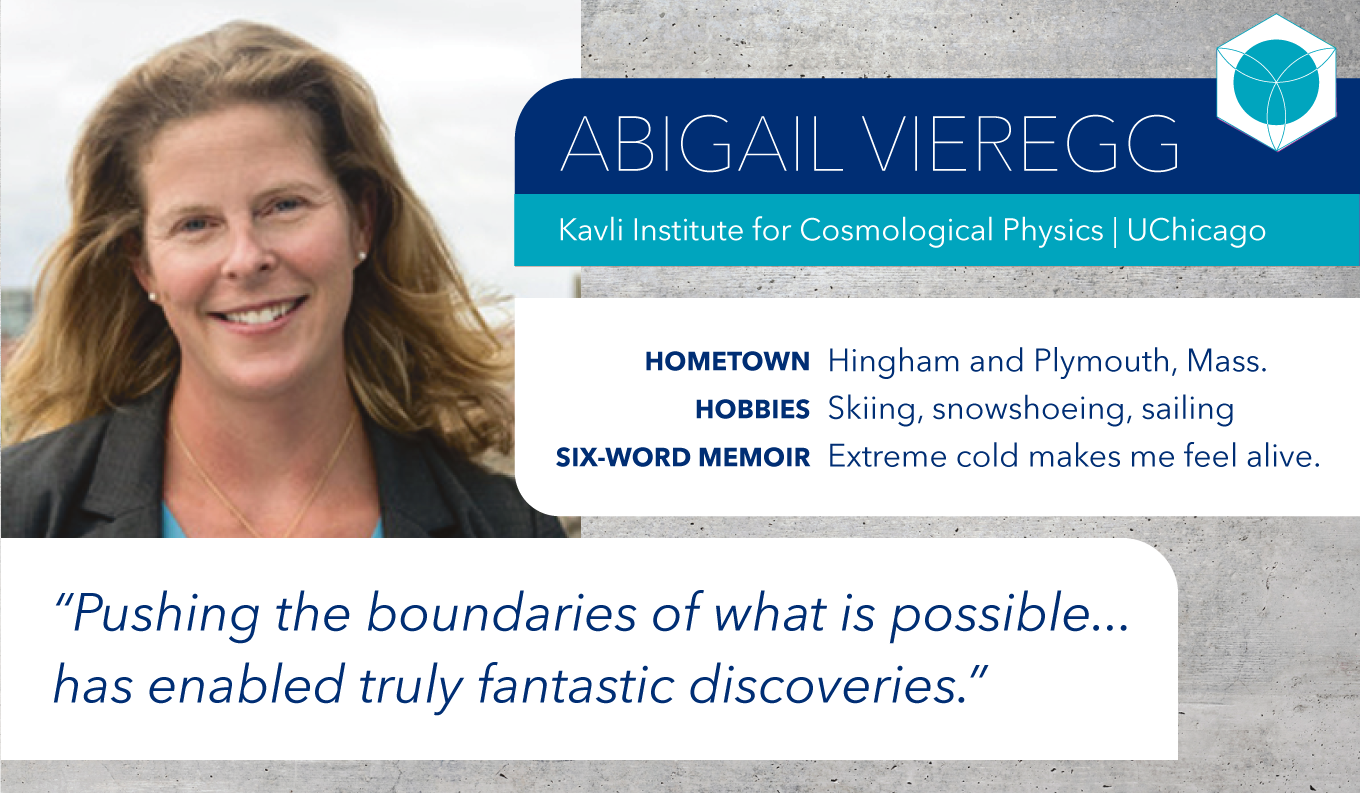Unabashed Curiosity
Q&A with Abigail Vieregg, director of the Kavli Institute for Cosmological Physics

Hometown: Hingham & Plymouth, MA
Hobbies: Hanging out with my family. Snow & water activities like skiing, snowshoeing, sailing, and swimming. Tinkering and doing home improvement projects.
Six-word-memoir: Extreme cold makes me feel alive.

How did you first become interested in science?
Looking back, I have always looked at the world as a puzzle to solve, and have always wanted to understand how things work. I don’t remember the moment I became interested in science, but I do feel as I go along in science that even though I didn’t know it, I was getting really great training as a kid from my family for the career I have now: unabashed curiosity, willingness and confidence to solve problems and make things work, an ability to work with my hands, a love of the outdoors and of adventure, and a bit of an appreciation of the absurd.
What question most drives your work right now?
How do the highest energy processes in the universe work?
What do you wish everyone knew about your research or your field?
We need many different kinds of scientists with different strengths to do the big science projects we are doing! Some people are really good at calculations, some people have extremely good intuition and can conceptualize problems, some people are really good at building instruments, some people make great decisions under pressure in remote environments, some people are really good at making and managing teams. And it takes all of those people to make great science advancements.
What are you most excited about or inspired by in science right now?
Shout out to my LIGO colleagues here: I find it extremely mind blowing the amazing instrument that the LIGO team has built to detect gravitational waves by measuring the tiny changes in space itself that occur when a gravitational wave passes by. That instrument is a modern miracle and is a great example where pushing the boundaries of what is possible technologically has enabled truly fantastic discoveries.
How do you explain your work to young students?
I work on two different things. First, we build telescopes that look at the oldest light in the universe, to learn about what the universe was like before galaxies, stars, and planets even existed! Second, we look for particles that come from the most extreme places in the universe, like rings of dust swirling around black holes, to tell us about what it is like inside of those places. I get to build these experiments in Antarctica and in Greenland!
If you could go back in time to the start of your career, what advice would you give yourself?
Don’t spend so much time worrying about what other people are doing.
What scientist, dead or alive, would you most like to have lunch with and why?
Easy peasy. My husband, at a restaurant called Berkel Berkel that used to be in Berkeley, CA.